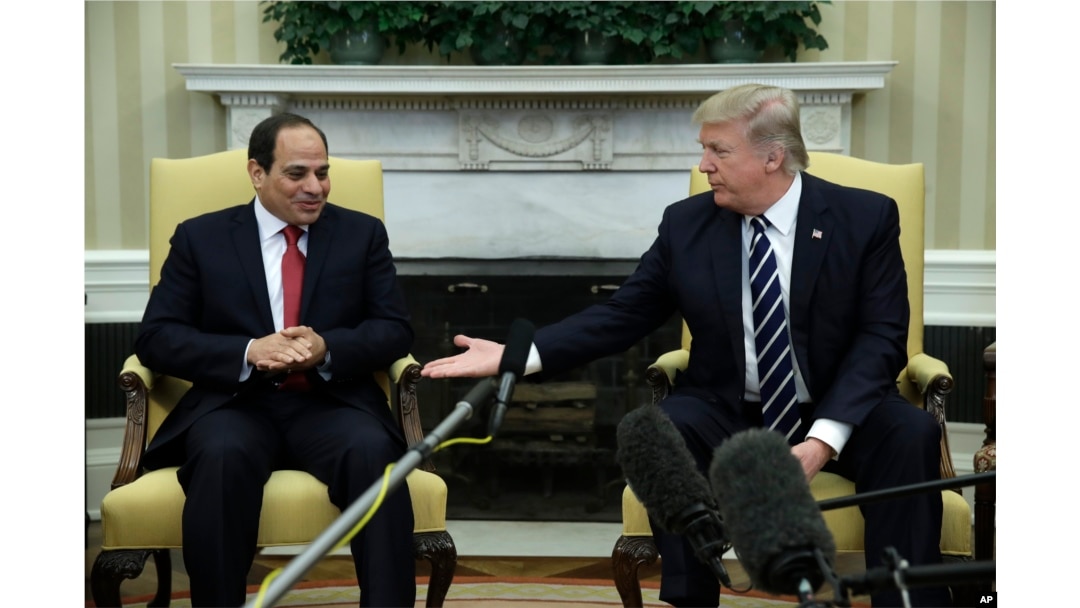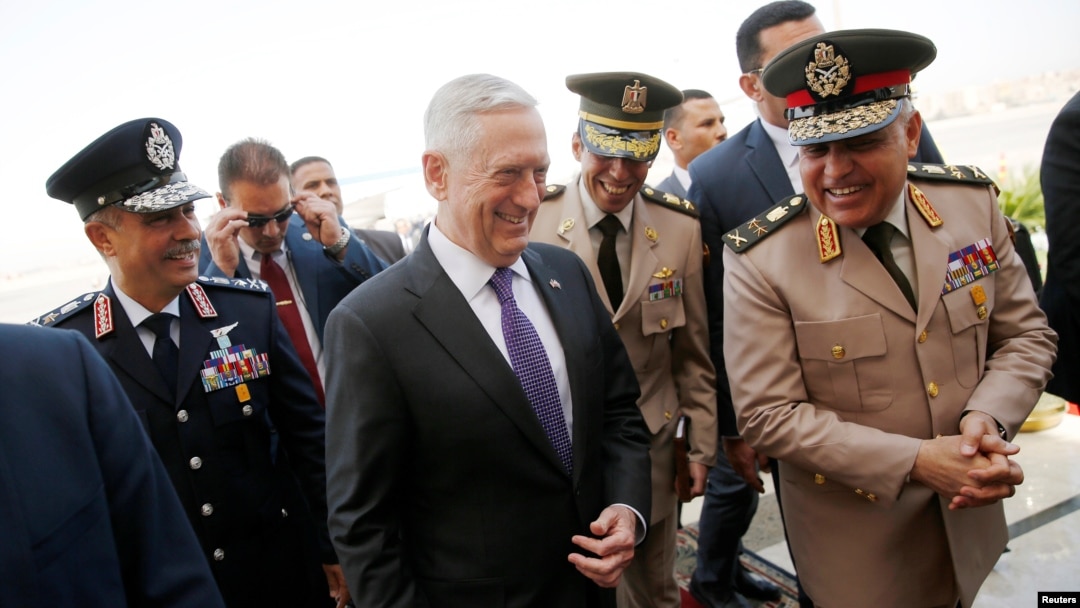U.S. Defense Secretary Jim Mattis says he and his Egyptian counterpart have agreed on the need for a renewed and strong security partnership between their two nations, as Egypt grapples with a rising extremist threat.
“I left Cairo very confident, very confident, in the avenues that we have to advance our military-to-military relationship which has been a bedrock and has stood solid all these years,” Mattis told Pentagon reporters after arriving in Tel Aviv late Thursday.
During talks in Cairo earlier in the day, Mattis said he and Egyptian President Abdel Fattah el-Sissi and Egyptian Defense Minister Sedki Sobhy discussed counterterrorism and securing the borders in a “very complex” security environment.
“You have seen the threats manifested against Egypt. They have included, of course, terror bombings against Egyptian citizens in the Sinai, (and) in greater Egypt, against Egyptians who are Christian,” Mattis said.
After meeting with Egyptian officials, Mattis laid a wreath at Cairo's Tomb of the Unknown Soldier before departing for Israel - his third stop on a Middle East tour that began in Saudi Arabia.
Warming of relations
Mattis was the first Trump administration official to visit Egypt. The talks came weeks after U.S. President Donald Trump hosted Sissi at the White House, the first such visit by an Egyptian leader since former U.S. President Barack Obama hosted Hosni Mubarak in 2009.
Political upheaval in 2011 ousted Mubarak and started years of turmoil that brought the authoritarian former general Sissi to power.
Middle East expert James Gelvin, a professor at the University of California in Los Angeles, told VOA much of the Trump administration's policy is aimed at being "anti-Obama."

President Donald Trump meets with Egyptian President Abdel Fattah al-Sissi in the Oval Office of the White House in Washington, April, 3, 2017.
"In other words, (Trump) looks at what Obama did and says, I'm going to do something very, very different,'" Gelvin said.
Brian Katulis, a senior fellow for national security at the Center for American Progress, says Mattis and others in the Trump administration should lean on allies like Saudi Arabia and Egypt to make sure partner efforts on the ground in Iraq, Syria, Yemen or Libya do not "simply fragment these countries" and instead connect to "actually isolating terrorist and extremist groups (while) also consolidating power in these countries."
Libya issue
In Libya, the United States has thus far supported the U.N.-backed Government of National Accord while providing airstrikes to help Libyans push Islamic State out of the country. Egypt also has bombed Islamic State targets in Libya but has instead backed Libyan military commander Khalifa Haftar.
Egypt's support of Haftar is a "bigger problem" that could cause Libya to further unravel," Katulis said, but added that the issue needs to be mediated by someone outside of the Pentagon rather than Mattis.
"It needs somebody who is thinking of the broader strategy in Libya and the Middle East, and a worry that I have here is that I don't see that person yet inside of the Trump administration," he told VOA.
Furthermore, reports of Russian military members setting up on a base in western Egypt have been disputed by Egyptian officials. U.S. officials have said a Russian deployment there could be a bid to help bolster Haftar in Libya.
One U.S. official told VOA Wednesday the United States is not concerned about Russian influence in Egypt.
"We will explain to the Egyptians, as we have to other Arab countries in the region, that getting too close to Russia is not in their best interest," the official said.


